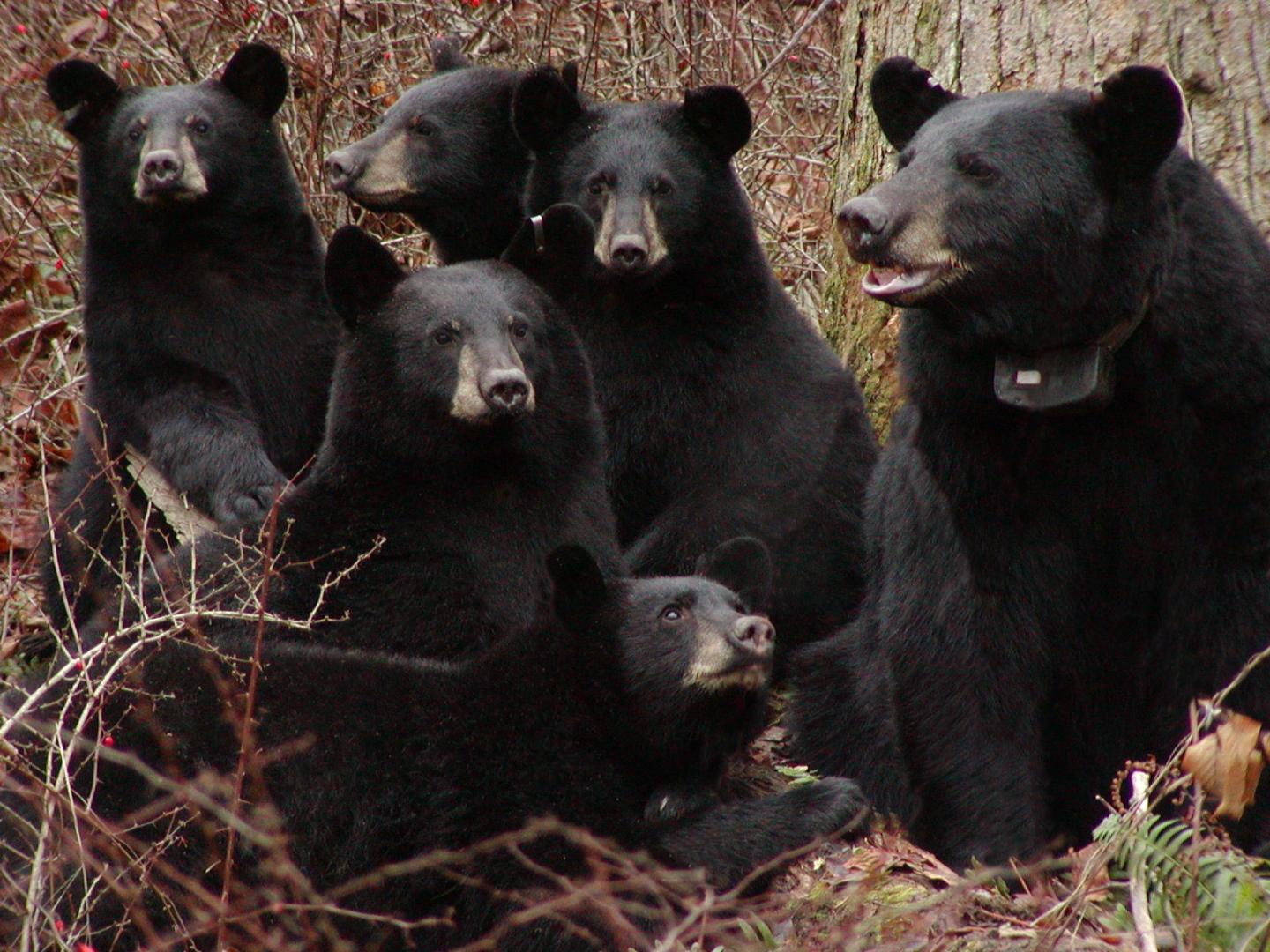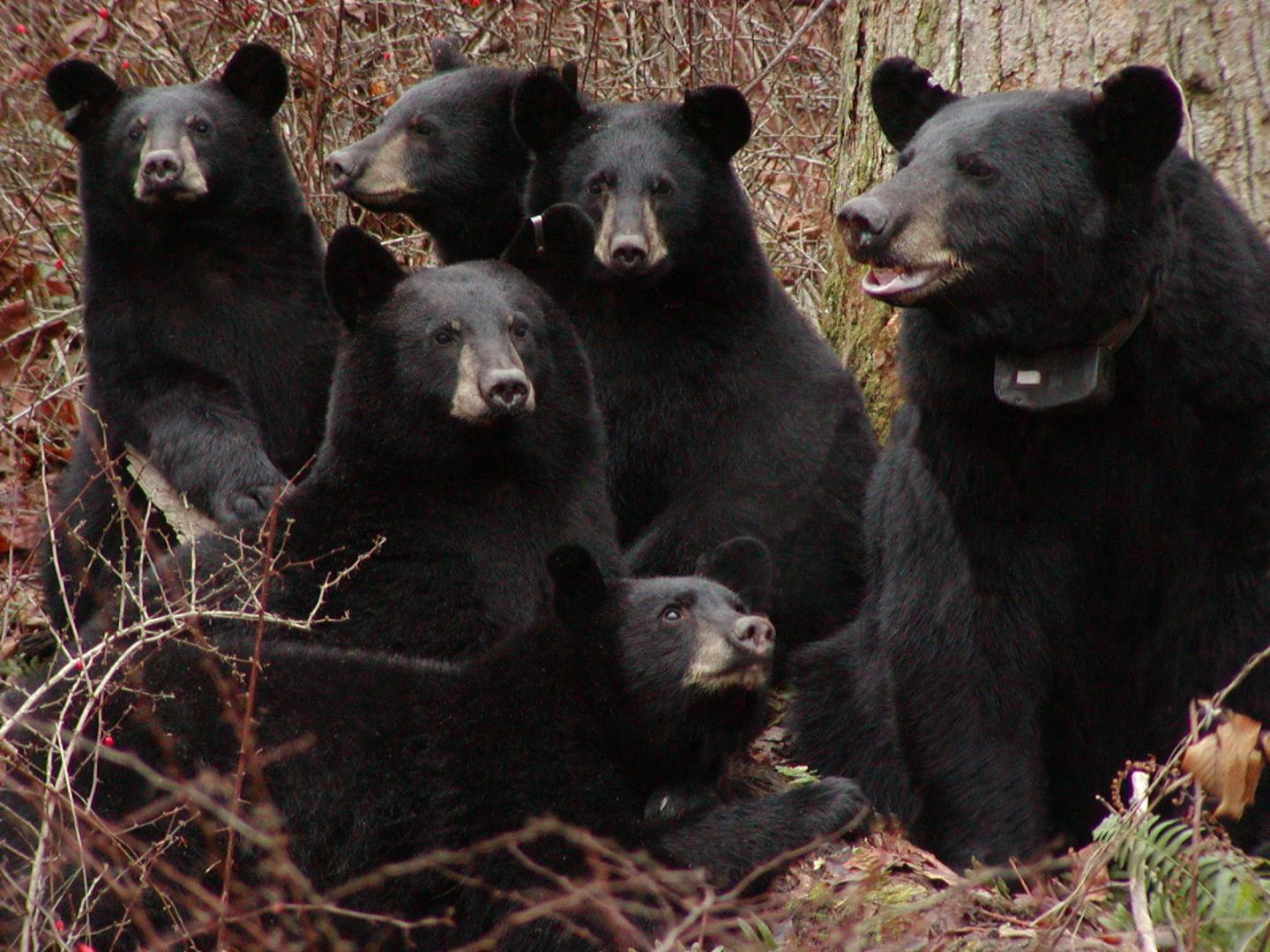
Credit: New Jersey Division of Fish and Wildlife
LOGAN, UTAH, USA – Is there room for black bears in human-dominated New Jersey? According to Utah State University researchers, the answer is yes, but only with science-based strategic planning, comprehensive management and thorough public education.
"Our research indicates regulated harvest of this recovered black bear population represents a pragmatic tool to help control population growth and, when coupled with incident-response management and educational programming, reduced the number of nuisance bear reports because hunters are more likely to harvest those bears with a history of being a nuisance," says USU researcher Jarod Raithel.
In a paper published Nov. 29, 2016, in the Journal of Applied Ecology, Raithel and USU colleagues Lise Aubry and David Koons, along with Melissa Reynolds-Hogland of Montana-based Bear Trust International and Patrick Carr of the New Jersey Division of Fish and Wildlife, discuss findings from a three-year analysis of NJDRW efforts and report the agency's nearly 35-year investment in bear research is paying off.
Nearly eradicated from the Garden State in the 1950s, later 20th century conservation efforts fostered a comeback and, by the early 2000s, some areas of New Jersey boasted bear densities on par with those of salmon-rich Alaska. But more bears meant more human-bear encounters and in 2003, New Jersey opted to lift its 33-year moratorium on black bear hunting.
Fortunately, NJDFW had the foresight, Raithel says, to invest in bear research early on.
"In 1981, NJDFW began compiling one of most comprehensive, long-term bear datasets in existence," says Raithel, a Presidential Doctoral Research Fellow in USU's Department of Wildland Resources and the USU Ecology Center. "The agency released the first Comprehensive Black Bear Management Policy in 2010, which requires maintaining healthy bear numbers, while curbing untenable population growth and reducing human-wildlife conflicts."
Encounters between large carnivores and humans generate excitement and, at times, tragic conflict. Even so, says Raithel, these animals are increasingly recognized as indispensable contributors of fully functioning ecosystems.
"Extirpation of these carnivores can have far-reaching, unintended consequences for humans," he says. "Thus, their harvest is often viewed as detrimental to conservation – understandable given the relentless human persecution of large carnivores. Yet here, a well-regulated harvest may actually improve the probability that black bears will persist, because removing the 'problem' individuals more frequently than those that stay out of trouble may ultimately increase the cultural carrying-capacity of New Jersey residents who live and recreate alongside bears."
Raithel says current land in the United States designated for wildlife protection will not suffice to ensure the long-term viability of apex carnivores.
"That means we have to focus on the wildland-human interface, where people and predators cross paths and figure out how to co-exist," he says. "For New Jersey, managed harvest appears to provide a balance, ensuring bear preservation and protecting human welfare and property."
###
Media Contact
Jarod Raithel
[email protected]
435-232-7139
http://www.usu.edu
############
Story Source: Materials provided by Scienmag





